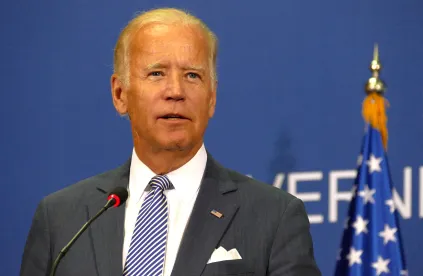Earlier this week, President Biden delivered a speech identifying certain executive actions he planned to undertake in order to advance his agenda of combatting climate change. These included: (1) "$2.3 billion to help communities across the country build infrastructure that is designed to withstand the full range of disasters . . . [such as] extreme heat, drought, flooding, hurricanes, tornadoes"; (2) "to deploy $385 million . . . [to] people suffering from extreme heat at home"; (3) to "develop[] the first-ever workplace standards for extreme heat" and to undertake "heat-related inspections of workplaces"; (4) "$16 billion to clean up abandoned mines and wells"; and (5) "to clear every hurdle and streamline federal permitting that brings [] clean energy projects online right now and right away." Overall, these initiatives are relatively modest in scope considering the scale of the challenge presented by climate change.
Notably, President Biden did not declare a climate emergency, or otherwise announce exceptionally aggressive measures by the executive. Such a response has disappointed environmental activists, who hoped for bolder action in the aftermath of Senator Manchin's (D-W.V.) effective veto of any substantive action by Congress to address climate change. The failure of that Congressional legislation, coupled with the recent Supreme Court decision in West Virginia v. EPA, led many activists to rely upon potential executive action as the only meaningful policy response by the Biden Administration to the challenge of climate change.
The relative lack of bold action via executive action at the moment does not preclude, however, a more vigorous response later. (It is possible that Biden may be awaiting the results of the 2022 midterms before announcing any especially controversial policies.) That said, the absence of major executive action at the moment would likely discourage any regulatory agency--such as the SEC or CFTC--from withdrawing or otherwise weakening proposed rules addressing climate change, as such a shift would likely prompt even more significant blowback from the environmental community. In effect, the failure to announce significant executive actions in President Biden's speech makes it more likely that existing efforts to issue regulations addressing climate change will be maintained, as to do otherwise would demonstrate substantial weakness on the part of the Biden Administration.
So my message today is this: Since Congress is not acting as it should — and these guys here are, but we’re not getting many Republican votes — this is an emergency. An emergency. And I will — I will look at it that way.
I said last week and I’ll say it again loud and clear: As President, I’ll use my executive powers to combat climate — the climate crisis in the absence of congressional actions, notwithstanding their incredible action. (Applause.)




 />i
/>i
